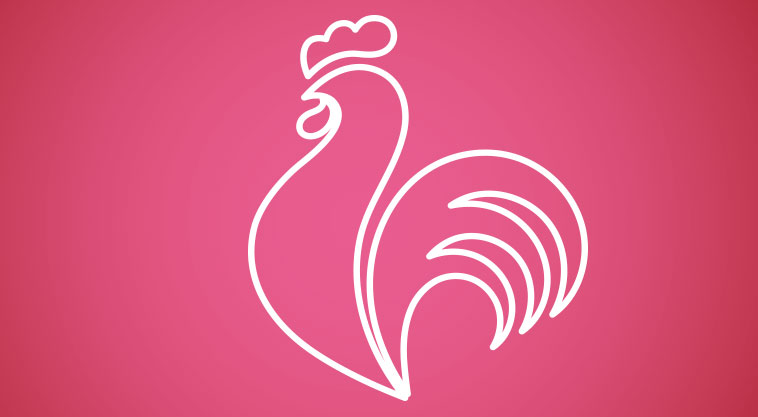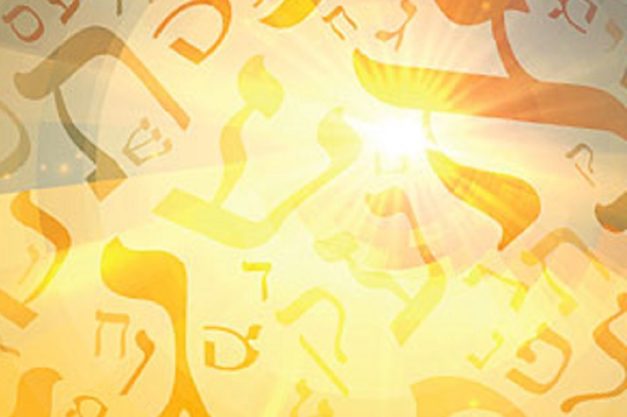Energy Source

To gain energy, go to the right source
I
t’s not surprising that energy bars and energy drinks are so popular. Who doesn’t want that extra boost? Ads for these products promise that snacking on an energy bar or chugging down a sports drink will leave you feeling revitalized and able to accomplish more.
These products, however, don’t hold the real key to increased energy. The brachah “Hanosen l’ya'eif koach,” which thanks Hashem for returning the souls we entrusted to Him the night before refreshed, is where our real investment in our energy levels should be.
The Tur comments that this brachah should be recited every morning, even though it’s not listed with the other brachos in the Gemara. But why does this brachah appear at the end of the birchos hashachar? And why is it recited specifically after we thank Hashem for our elevated state as Jews, who are crowned with His glory?
Rabbi Efrayim Forshdam, in Lefanav Naavod, emphasizes that this brachah is a reminder that Hashem is the One who infuses us with renewed energy, and that our energy isn’t, as we tend to think, the result of a good night’s sleep. This brachah drives home to us that we're limited beings; all of our success and abilities are a gift from Hashem.
Rav Schwab gives us a historical perspective to this brachah, noting that the Rabbanan Savorai, who edited the Gemara, were the ones who composed this brachah, basing it on the pasuk, “He gives strength to the weary, and grants abundant might to the powerless” (Yeshayahu 40:29). The Targum explains this pasuk is a reference to the Jews who are tired from the travails of galus. Rabbanan Savorai saw that the galus was going to last a long time, and so they composed a brachah to help us endure the long bitter exile experience.
This brachah therefore follows the last two, which address the uniqueness of the Jewish People and our special relationship with Hashem. Once we're focused on that, we're prepared to give thanks to Hashem for the miracle of Jewish survival and our spiritual resurgence as a nation.
Life’s Reality Check
Rav Elimelech Biderman quotes the Midrash about the visitors who came to Avraham Avinu’s tent and washed the dust from their feet, as this was their idolatry. When we go from place to place, from meeting to meeting, he says, the “dust” on our feet piles high, and we may gain the sense that we’re responsible for our own successes — i.e. fall prey to self-worship. Rav Biderman quips that the popular song, “V’afilu b'hastarah, sh'betoch hahastarah, bevadai gam sham nimtzah Hashem yisbarach — Even in the concealment, that is within in the concealment, Hashem is most definitely found” should be sung as, “Even in hatzlachah that's within hatzlachah….”
We need to realize that our success isn’t dependent upon us, but a direct result of Hashem’s involvement. We must recognize that we’re limited and that it’s Hashem Who infuses us with energy and gives us our abilities. This recognition gives us the necessary perspective to begin our day. That’s why this is one of the last brachos of the birchas hashachar; it catapults us to the mindset necessary for beginning our daily activities.
Rabbi Avigdor Miller sees in this brachah a daily reality check for life. We know that sleep is considered a 60th of death. Every morning upon awakening, we're reminded of life’s transience, and when we ask Hashem for renewed strength, we’re forced to reflect upon how we’re using this gift from Above. Are we indeed utilizing all our strength to serve Hashem properly? Are we utilizing our talents and our abilities to their fullest measure?
It can be too easy to delude ourselves. When we’re tired, Rabbi Forshdam says, we should ask ourselves if we truly have no strength — or if we simply have no desire. We must be honest with ourselves; often, lethargy isn't rooted in a lack of physical strength, but in a lack of ratzon.
Rav Meir of Premlishan suggests that we can overcome this lack of ratzon by focusing on the two pieces of paper we're supposed to keep in our pockets, reading, “I am dust and ashes,” and “For me the world was created.”
If we feel haughty, we must recognize that we're but dust and ashes; Hashem is the One who infuses us with the ability to complete any tasks in this world. At the same time, when we feel that we have no energy or desire to do a task, we must keep in mind that the world is made for each of us, and our work is monumental. With this mindset, we'll be able to summon the inner will, strength, and ability to perform.
Spiritual Energy
It’s interesting that sleep and lethargy are unique to physical beings. Angels never get tired. Rabbi Moshe Meir Bernstein in Laboker Rina quotes the Mesillas Yesharim where he discusses the importance of the middah of zerizus. He explains that our physical side weighs us down, leaving us feeling limited in what we can accomplish. However, our spiritual side has boundless energy. Indeed, Maalot Hamidot translates, “l’nefesh chaya” as “a soul with quickness.” Our challenge is to be able to access the spiritual desires that are found within us and tap into the endless resources that Hashem gives to those who do His will.
Rokeach notes that there are 11 words in the pasuk, which parallel the 11 pesukim in Mishlei that bemoan the state of laziness. Yaavetz, on the mishnah in Avos, 5:21, explains that if someone sets out to do a mitzvah, he's imbued with a rejuvenated spirit, which infuses him with added energy. Reciting this brachah reminds us of this spiritual reality, and encourages us with the knowledge that one who hopes in Hashem will not falter.
Rav Gamliel Rabinowitz in Tiv Hatifla elaborates on this spiritual energy, explaining that this brachah is a reference to the strength needed to fight the yetzer hara.
Kaf Hachayim explains that our tiredness is due to our sins, citing Eisav, who's described as “ayef,” tired, when he returned from the field after selling his birthright. The Midrash notes that he was tired from committing sins.
In this brachah, we acknowledge that all the while we sin without doing teshuvah, we're in a perpetual state of tiredness. Further, the Nesivos Shalom teaches, sin has the ability to bring us to the state of despondency and depression, which paralyzes a person from wanting to grow in their avodas Hashem. We acknowledge we need Hashem’s help in this uphill spiritual battle, and that He gives us the fortitude to continue forward. Every morning, as we end the birchos hashachar, we acknowledge that it's only Hashem who can give us the strength to withstand the spiritual challenges that face us each day.
There are no quick fixes in life. But when we're able to acknowledge the source of our lethargy, and strengthen our spiritual desires, we will indeed discover that Hashem is “nosen l'ya'eif koach.”
(Originally featured in Family First, Issue 660)
Oops! We could not locate your form.



